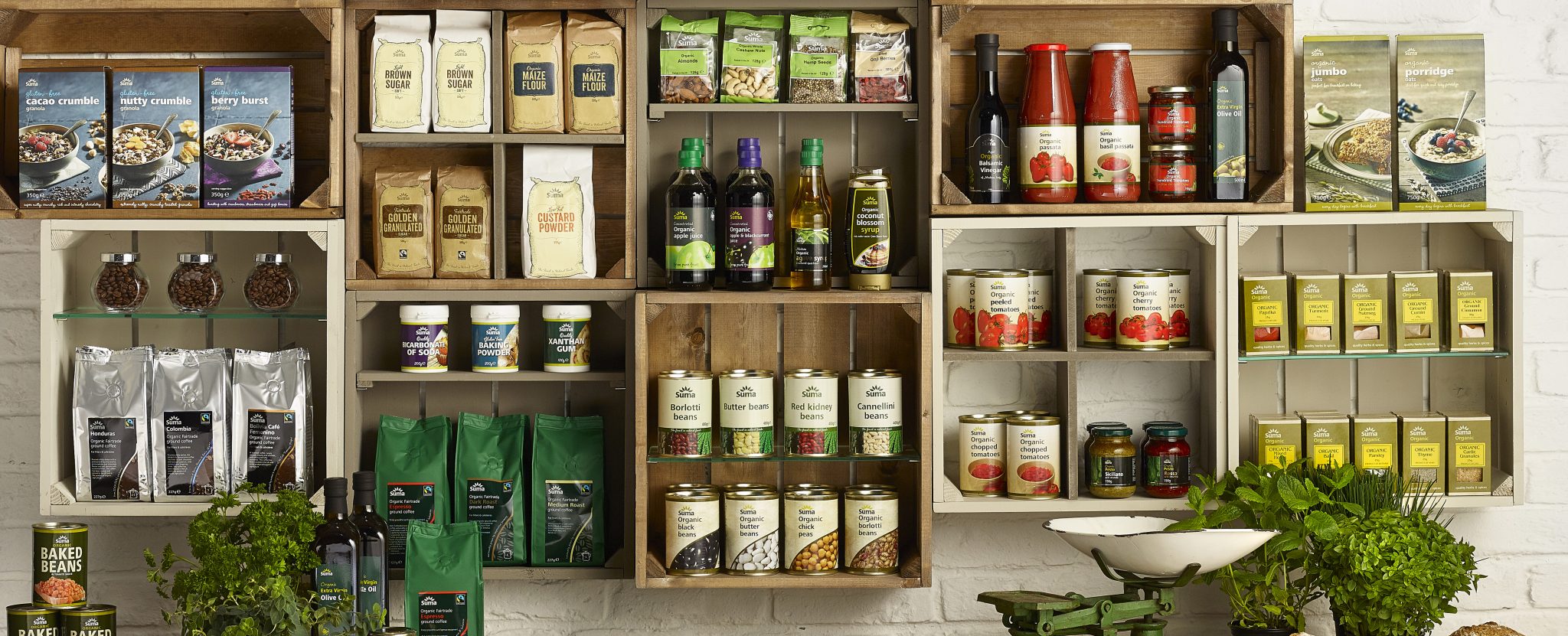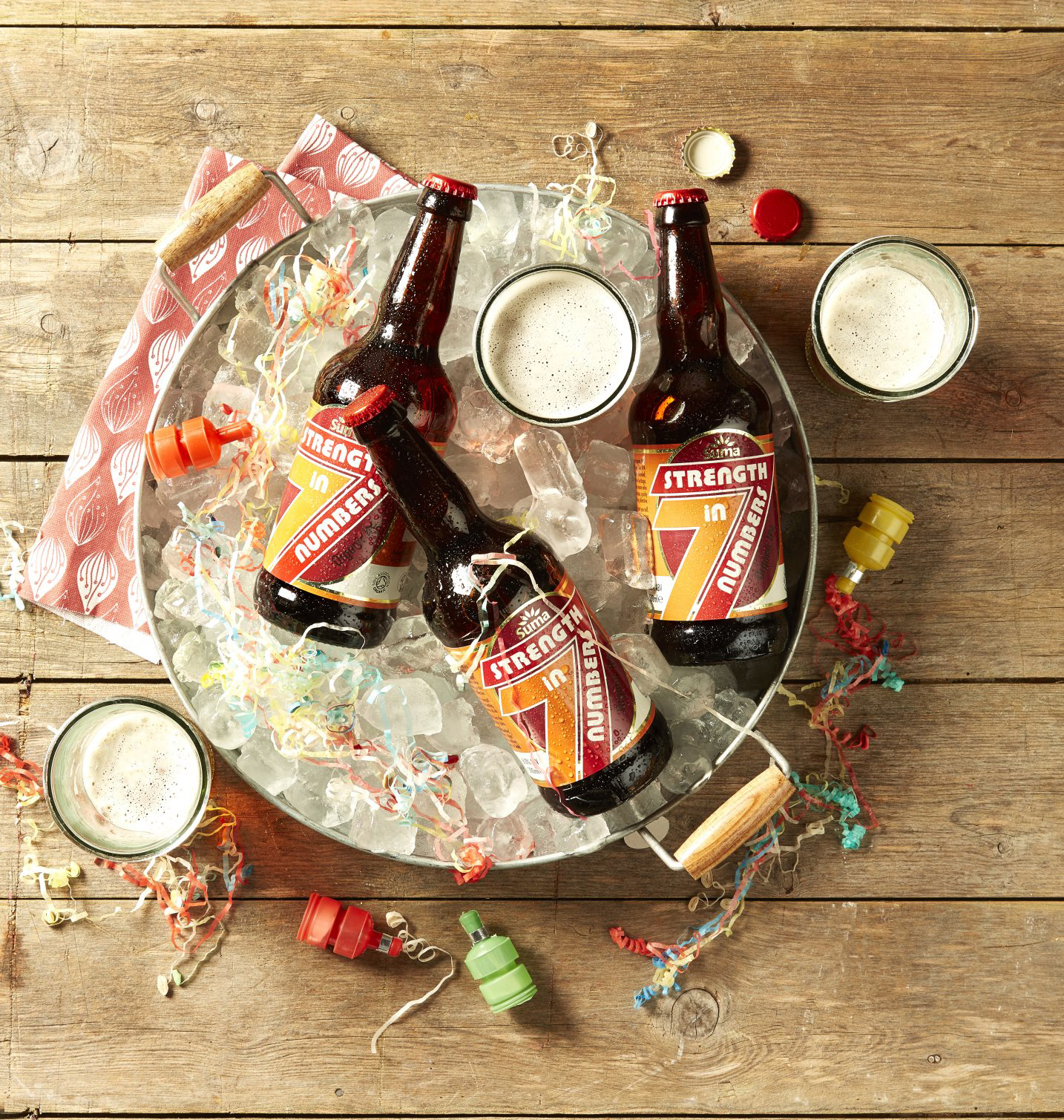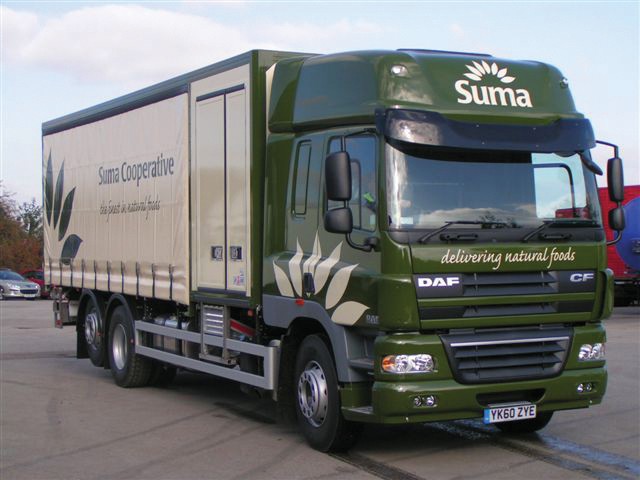Suma is the largest independent wholefood wholesaler in the UK. It is also the country’s largest workers co-operative, with 166 members and a turnover of £48m – £12m of which is own-brand products.
It was started in 1975 by Reg Taylor, who saw a gap in the market and started selling pulses and rice, allowing small independent health food shops in the area to be able to buy together in bulk. Two years later, he sold the business to seven employees, who decided to run it as a workers co-op.
2017 marks the organisation’s 40th anniversary. So what changes have members seen over the last four decades? And what have been the biggest challenges?
A wholefood pioneer
Suma was one of the pioneers of organic foods, and has benefited from growing consumer interest. It started with items that were harder to get hold of – brown rice, dried fruit, lentils, chickpeas, figs, walnuts, as well as porridge, oat flakes and muesli mixing ingredients.
Today the range has expanded to include a lot of free-from, gluten-free and vegan produce – and Suma also works with co-operatives, Fairtrade, and organic sources.

One of the most popular products is vegetarian beans and sausage in a tin. “People had this when they were kids – now we do a vegan option and it’s one of our most popular items!” says Emma Robinson, worker member at Suma. Suma has adapted and stayed at the forefront by innovating more and keeping on top of food trends – and tinned beans and sausages are just one of over 7,000 different products now stocked.
Suma was the first to bring organic canned tomatoes and organic canned beans to the UK market, and was also the first to bring in 100% recycled toilet roll and kitchen paper. In the 1980s, it launched the UK’s first vegan sunflower spread.
“Originally, our core market was a network of co-operatively run wholefood shops,” says Geoff Price, who joined Suma 35 years ago, making him the current longest-serving member.
“We also sold to food groups – people and communities who wanted to eat healthily but couldn’t find what they wanted in the main stores, so clubbed together with friends to get a delivery. We still service those groups, but have also evolved into serving ex-pats, we’ve dabbled with the multiples, we have a presence in the Co-op.”
Growth and changes
As the business has grown, Suma has moved site several times. “Keeping up with the level of growth, keeping on top of a rapidly expanding market, looking at new routes to delivery and adapting the co-op to keep the same co-operative model and principles have all been challenging,” says Emma.
“Originally our structure was based on total consensus,” adds Geoff. “Every Wednesday afternoon we would shut down and have a meeting. I remember one particularly heated discussion about the price of flour!”

While this system worked for a group of 8-20 people, 150+ members meant that things have had to change. Now there is a management committee who work on a business plan, and department co-ordinators who re-apply every three years – and work for consensus with colleagues.
But importantly there is still no ultimate authority figure, and everyone is still paid exactly the same (£15.60 an hour). Suma has a rigorous selection process, with a six-month trial membership before you can become a full member.
The original seven members were a number of like-minded, politically minded people who wanted to change the world. “It was people taking control of their own lives, managing and owning collectively,” says Geoff. “This still isn’t a conventional workspace, and there is no restraint on personalities, but we are bound together by political and social aims.
Related: Suma co-op wins Queen’s Award
“When there’s a crisis, this set-up works well. We had a flood in our last premises and lost half a million pounds worth of stock, but because everyone could work together we were up and running within 10 days!”
A few years ago, Suma opened a hub just outside London, and this has also proved a new challenge. “Now we’re recruiting members in London, another issue is making sure the trial membership is fair compared with headquarters,” says Emma.
Communication is also monitored closely. Suma is testing Loomio and looking at other different options and has quarterly meetings for the whole co-ops – and making sure everyone has chance to participate is more difficult as Suma has grown.
But, adds Emma, all of this has meant the organisation has enjoyed a period of intense learning as the co-op is forced to look at the best ways to adapt and grown.

“Being involved with Co-operatives UK and working with other co-ops has been a great way to share and learn about different models and communication styles, for example,” she says.
In 2014 Suma was named Co-operative of the Year by Co-operatives UK (they are shortlisted again for 2017) – and earlier this year it gained the Queen’s Award for Enterprise in the International Trade category.
A birthday year
To mark its 40th birthday, Suma is having a year of celebration. It is partnering with a local school, setting up an allotment and other food links, while members are volunteering in the local community during Suma time. As part of the celebrations, Suma is investing in coffee producers in Peru, supporting the building of a wet mill and drying patio that will increase efficiency and reduce crop diseases for six small producers.
A collaborative book looking at its history, as well as recipes and anecdotes, is launching in September, and throughout the year the co-op is selling its special anniversary beer.
“We’re proud of our beer range anyway,” says Emma, “but we’ve not had an IPA before. It’s brewed by Little Valley Brewery, who we have strong links with anyway, and has a real celebratory feel.”